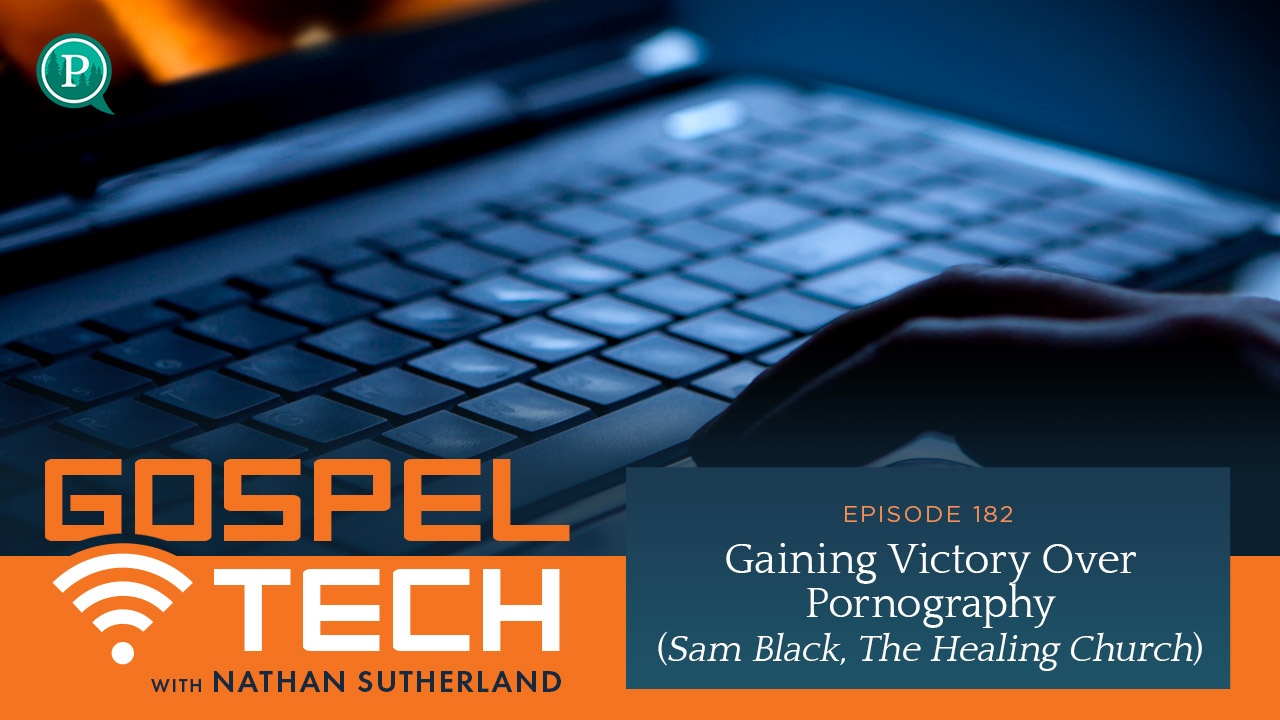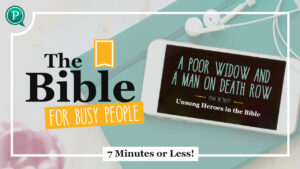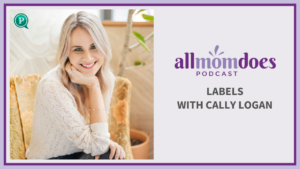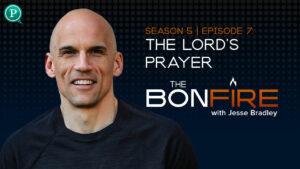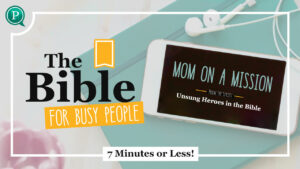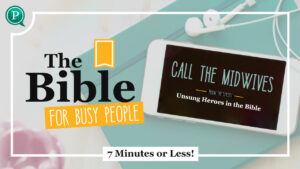How can the Church help people find victory over lust, pornogrpahy, and the lies that go with them?
To help us answer this question we talk with Sam Black, Director of Recovery Education at Covenant Eyes and author of The Healing Church, a book designed to help churches and families set free from pornography to serve God as they are called.
Sam shares from his personal testimony, his wealth of experience in the field of accountability software, and his personal passion to see churches be the body of Christ for all who seek hope and healing in Jesus.
Show Notes:
Covenant Eyes | Instagram | Facebook | Twitter
Book: The Healing Church by Sam Black
Ways to listen:
🔗 click the link in the profile
🎧 search Gospel Tech in your favorite streaming service (iTunes, Amazon)
Transcription:
Nathan Sutherland:
Welcome to the Gospel Tech Podcast, a resource for parents who feel overwhelmed and outpaced as they raise healthy youth in a tech world. As an educator, parent and tech user, I want to equip parents with the tools, resources, and confidence they need to raise kids who love God and use tech. Boom. All right. Let’s get it going. Hello, everyone, and welcome to the Gospel Tech Podcast. My name is Nathan Sutherland and this podcast is dedicated to helping families love God and use tech.
Today, we are joined by Sam Black, the author of the book, The Healing Church. Sam’s been with Covenant Eyes as the Director of Recovery Education. Covenant Eyes, if you don’t know, is a screen accountability software program. It’s amazing. You’ve probably heard me talk about it before, but Sam, thank you for being here with us.
Sam Black:
Nathan, honored to be here. Thank you so much for having me. I’m looking forward to this conversation.
Nathan Sutherland:
Yeah, me too. So, a little bit of context, listeners. I’ve used Covenant Eyes since I think 2003, that’d be my junior year in college. Covenant Eyes has been an absolute game changer because it’s not just about keeping all the bad things out. I talk a lot, Sam, about not just building big enough walls so that nothing bad ever comes in. We don’t want to just be porn proof, we want to be porn resilient. In my life and journey with Christ, as I’ve grown into an adult man and as I’ve become a husband and then a dad, this is more and more important to me. As I say in my talks, I’m like, “Hey, it’s not going to stop you from making a bad choice. You’re an adult. You can make a bad choice if you want, but it’s going to make sure someone you care about and who cares about you sees it too.”
That idea that it brings that truth, that gospel light of like, “Yeah, you’re never actually alone. So, make the mistakes you want. Just know that loving people will see it.” So, I’m a huge fan. Listeners, I’m pumped for you to hear from Sam. So, Sam, maybe take us back a little bit and say, how did you come to work for Covenant Eyes? Can you give us a little bit of the arc leading up to this journey?
Sam Black:
Oh, man, that’s a big story. That’s a longer story. It is a total God thing. I’d served 18 years as a journalist and I love that work, but my wife came to me one day and she says, “Hey, you know that organization Covenant Eyes that one of our friends works for?” She says, “Yeah, they’re doing amazing work.” She says, “Well, they need somebody who can do some things that you do.”
Nathan Sutherland:
Thus began the journey. It’s your wife who did it.
Sam Black:
Right? I say, “Well, maybe I’ll give them a call.” She goes, “No, I’ve been praying about it and you’re going to give them a call.” She’s usually not like that. So, I said, “Okay, I will definitely give them a call.” I went and talked to them, did the typical interview thing. They began handing me emails saying… This was back in the early days. This was back in 2007 and around since 2000. But even then, we were still small at that point and they began handing me emails. Thank you for what Covenant Eyes has done in our life. If it wasn’t for Covenant Eyes, I wouldn’t have made it through seminary or I just had the most amazing conversation with my teen son, or thank you, you’ve helped us rebuild trust in our marriage. It was just amazing and uplifting, but it was also really heavy.
In my own carnal thought, I said, “God, I want you to bless them because I’m going to go back to my office now.” I don’t try to convince people that God talks to you through your subconscious or physically or however. I was driving to or from the office and it clears a bell. I heard a voice say, “Sam, your whole career has been about you. This is what I need you to do for me.” I said immediately, “I’m not doing anything about coming to Covenant Eyes. I’m not calling them, not sending them a nice note for the interview or nothing.” I said, “God, that’s on your hands.”
Nathan Sutherland:
I’m burning this bridge.
Sam Black:
So sure enough, they called me up and said, “Hey, we’d like to invite you for a second interview.” I went in. They did a second interview. They just said, this is all they could afford to pay. Because in this early timeframe of Covenant Eyes, they were in these ramshackle old offices where tiles were coming off the floor, tiles were missing off the ceiling. They had a server sitting on a cardboard box, and we live in Michigan. So, the running joke was before you go to the bathroom, be sure to crack the ice in the toilet. So, that was my coming to Covenant Eyes. So, man, I tell you what, ever since that I’ve been there hearing stories of beauty and courage and overcoming and life, I’m just excited there. I’ve never looked back. It has just been an amazing experience and God has allowed to use me.
I mean, I was just writing, but he also took my weakness, my misery that I had gone through and allowed it to become ministry, because I was exposed to pornography at the age of 10. I had a friend. That early exposure is so impactful. Almost every person you meet can tell you a story about the first time they saw pornography, even though they can’t tell you anything else about that day. I had a friend and his dad had pornography that was just falling out of his closet. Now I’m dating myself with magazines, but it looked like a little waterfall where on the top shelf were stacks of pornography that was leaning over and there was a pile of it on the floor. I could take anything I wanted and I did. Yeah. I also came from a violent home. That’s the third part of this.
The first part is the early exposure, that ongoing use and repetition that burns those neural pathways in the brain. Number three, this is the third commonality, is some trauma or drama, especially early in life. I came from a violent home, where pornography, I could run to as an escape, and that escapism would follow me from middle school to high school to college and my marriage. I’m among the most fortunate men, and probably a great impetus for writing The Healing Church is my local church that my wife began attending without me because I’ve become agnostic at this point. She asked me as she’s attending this church, “Hey, would you attend this Bible study with me? It’s on marriage.”
I knew our marriage needed help, and these teachers were a little nuts. They would close the door and they would turn and look at the class with a big smile and say, “This is a safe place. What’s said here stays here.” Within that environment, I got to walk with guys like you, Nathan, who helped me take one step at a time on a journey to live in freedom from pornography.
Nathan Sutherland:
That’s amazing. So, that was up through your journaling time. So, when your wife came to you and said, “Hey, this friend of ours works at this place, you need to use your skills for this,” that was the impetus. The heart behind it then was she’d seen you gain freedom and knew your skills could help others. Was that the…
Sam Black:
Well, I was still on that journey and it was all of the above. She had seen my growth in this area, the journey I was taking, but also the journalism background and things that I could write. I’ll tell you what, Covenant Eyes really supported me. When I was coming in, I was still fighting the fight. I had not reached real full recovery. What I found on that road is Covenant Eyes supports its team members and will not leave them behind. We have had members of our team who said, “Hey, I’ve had a relapse. I’m struggling.” We’ve had members of our team that said, “Hey, I’m just going to step away for a little bit. I’m going to go and go through an intensive things of that nature.”
We made sure that they were taken care of. That’s what we need in the church too, that safe place with safe processes that allow us to press into those weaknesses that anywhere else we couldn’t really talk about. But we need a safe place and a safe process right now.
Nathan Sutherland:
I mean, your book, The Healing Church, it’s massive. You’re addressing a huge issue in our churches and in the American church specifically. Could you walk us through what is the intention and the heart behind this as that can be an intimidating topic? I mean, just what you said, right? No one wants to go into the room and have the door shut. No one wants to be found out, but all of us want freedom. What does this book look to do in addressing The Healing Church?
Sam Black:
A couple of things, so many things. I had to write a whole book about it, but part of it is I wanted pastors and ministry leaders to really understand how people get stuck, more than often stay stuck without help and how we can really help people take their first steps in real and lasting, more importantly, freedom. So, I think so often in the church today, we have often taught that this is a struggle with lust and things of that nature that we’ll just have to fight and lose battles along the way on an ongoing basis. That’s just going to happen. That’s not true.
Then separately, only 7% of churches are doing anything at all to provide support. So, we often end in the spectrum within the church of safety. On one side of the spectrum, it is very safe to come as you are, but you’re not asked to change. You’re stuck. Well, we all just struggle, so you’ll just have to keep struggling, right?
Nathan Sutherland:
Right. God is good.
Sam Black:
That’s not very helpful.
Nathan Sutherland:
So best of luck.
Sam Black:
On the other side, it’s not okay for Christians especially to have strongholds or problems in their life that they don’t have victory over. So, they can be shamed or even ousted. What we need is a safe place with a safe process where people can find real freedom. A safe place allows you to come as you are. A safe process says, “Hey, we don’t want to leave you stuck where you are. We want to help walk you through that life change.” I had to understand myself that I had made a cage of my own making. I built it bar by bar and block by block. I reached the door, turned the key, and then I threw away the key. By the way, nobody keeps the key.
Nathan, what I needed was someone like you to come and say, “Hey, I see you as not a problem, but as a person and your identity is found in Christ and not in your sin. If you really hate this jail cell, would you like to go in a process with me, a real healing journey?” Within that, I get to stop running back to what is familiar and you’re showing me something new. You’re showing me a new way of reacting because I have learned to use pornography to anesthetize my moods and regulate my feelings and emotions. Now you’re saying, “Okay, Sam, you had a bad day. What are you going to do about that? How are you feeling?” In the past, I might have gone because of I had a bad day at work, I might have gone and viewed pornography, not even realizing that’s what I was doing.
Pornography teaches all these lies in our brains that have us running to escapism. When you are walking with me, you’re helping me identify my feelings and emotions. You’re allowing me to think about, “How am I going to react to this differently? What are positive outlets? How well am I taking care of myself, mind, body and spirit? What actions am I taking in mind, body and spirit to find renewal?” With that authentic relationship, that builds a connection that is contagious and it’s empowering. The more I walk on it with you, the more I want to give it away to others.
Nathan Sutherland:
I love that picture. So, when you’re talking to Healing Church that it’s not just, “Well, here’s what we’re going to do. We’re going to put filters on our computers, so everyone make sure you got a filter. So, no porn will show up. We’re just going to tell you that if you’re looking at porn, you should stop.” So you’re not just doing that and you’re not just doing the accountability thing, which unfortunately, it’s a great word. I love the term accountability partner, but it definitely, in my season of growing up from high school to college to adulthood became a weird codependent thing that I almost blame my accountability partners if I have a problem. Just what you said, that idea of, no, these are accountability coaches. I believe the covenant term is like an ally relationship.
Sam Black:
What triggers are happening? Because as we are taking this journey together, you’re helping me talk about my triggers. One of the times when I run to pornography is when I’m hungry or angry or lonely, tired. All those things can have an impact, and you’re helping me make better choices when those triggers happen. I’m contacting you when I’m triggered, not after. Oh, well, I blew it. No, you’re saying, “Hey, Sam, how are you doing today?” When I look at my device and I’ve got Covenant Eyes on, it’s a reminder that I’ve made a covenant with you, that I’ve said, “Hey, I want you to walk with me.” That commitment says, “Hey, I make sure that I’m reaching out when I’m feeling tempted, when I am struggling before anything does happen.”
I’m not going to wait for, “Well, is the software going to catch this or that or something else?” I need to reach out. An ally is what we call it, because an ally has your back. An ally is someone you trust. An ally knows your goals and wants to see you achieve them. That ally relationship is so beautiful and we need to press into it, but we have a hard time with that. We know that one of the foundational principles of the Christian faith is James 5:16, to confess our sins to one another and pray for one another that we may be healed.
But I talk to folks in small churches and they say, “Sam, in our church, we’re fairly small and we know each other. So, how can we really be honest with one another?” That way, it’d be just too shameful. I go to a large church where there’s 3,500 or 5,000 people and they said, “Sam, I don’t know someone in this large church who I can really trust to be my friend. I don’t know anyone well enough.” So it’s not the size of the church that’s the problem. We need to ask ourselves what part of James 5:16 do we not believe?
Nathan Sutherland:
Yeah, which is huge, right? So it’s being known and being willing to be faithful with what God’s called us to. So, I think I really took you on a dive there because I want to hear on your book and reading through just the idea of porn as an idea, what is porn? I know I don’t want to steal too much from the content. Everyone should get The Healing Church because that is our conversation here about this book you’ve just written. But having that conversation, some people are like, “I don’t know. It has to do with…” How would you define it for people who are trying to process this personally or engage their kids, they head out into a digital world?
Sam Black:
Well, that is a big question because you just packed about five questions in there. So, let’s start with the first part, and that is, I think I’m hearing you say, “Well, Sam, what would you define as pornography?”
Nathan Sutherland:
Yeah.
Sam Black:
All right. We have to understand that the surveys and studies that we’re reviewing, the numbers that we’re seeing are surveys that were done with people with their definitions of what pornography is. So, when we say two-thirds of men in the church, a third of women in the church say they have an ongoing struggle with pornography, there’s a sense that we know what pornography is. It’s some very deep sexual media, something’s more than just something naughty.
Nathan Sutherland:
Sure.
Sam Black:
Here’s the kicker for that survey that I just talked about from Barna was that 16% of men and women said, if it is a video film where it is showing sexual acts and nudity and there is no other storyline except the sexual acts, that’s still not pornography.” 16% said that was not pornography. So, when pastor said, “You know what? I think that two-thirds of men and a third of women might be a little bit low,” they’re probably right. Because so often, even in the church, I try to encourage pastors to really help them define what’s most important and talking about pornography as well, because often they’re not on the same page with their congregation. Their congregation is hearing something else.
I do think it’s imperative as Christians for us to ask ourselves a very pertinent question and it’s the question that Jesus posed. He said, “If you look on another with lust, if you’re objectifying someone else for your own gratification and that lust, well, that’s pornography to you.” That’s how I would define pornography and why I need to check in. I still to this day, check in every Thursday night with a group of Sam Society guys that we’ve been on this road a little while and we’re just constantly reading the next book. In that fellowship, we’re always checking in. You’re like, “Wait, Sam, you’re living in sobriety, you’re living in freedom from pornography, and you’re still checking in.” Heck yeah, absolutely. Why?
Because you keep what you give away. We nurture others and we are serving one another in this battle. We have allies because I feel really strong, but I’m not going to wait for the time that I feel weak that that’s when I’m going to reach out to someone for help and support and guidance. I’m talking about what I’m feeling and what I’m thinking and what I’m thinking of doing, right? We do those check-ins because it’s important to our spiritual selves as well as for our mind, body, and spirit.
Nathan Sutherland:
Then you build that culture of normalcy with repentance, and you live out the gospel in that way. That’s so beautiful when…
Sam Black:
Yes.
Nathan Sutherland:
I think you’ve addressed it here, but part of that question was also how do people get stuck in this thing? If we have two-thirds of men, which might be 16% low, getting very close to four-fifths of men and at least a third of women saying, “This is an ongoing battle for me.” Why?
Sam Black:
Yeah. So, often they’re asking, “How did I get here? Why do I seem to stay stuck, and how can I take my first steps toward freedom?” I started off telling my story a little bit, so three commonalities that I see and this is true, this is backed up by Christian counselors across the board. It’s backed up every time I do a newcomer meeting for Sam Society, and I have men tell their story. I always go first. This is what I hear. It’s the early exposure, the three commonalities, early exposure, the ongoing repetition, which typically happens in adolescences and teenage years, and some drama or trauma that happened early, often early in life, but it can happen elsewhere. Those three work together to cement that stronghold, that compulsive behavior in adulthood.
So often, we look at a man or woman and we say, “Hey, stop that. Don’t do that. God’s not for that. If I warn you, if I share a purity sermon with you enough, then that will be enough to make you stop.” But we miss the idea that this has been going on for a long time. I talk about it in the book, and this is so common. If we can think of 37% of men in the church, so they’re watching of all ages. Say they’re watching pornography multiple times a week. That 36% of men, 18 to 30, say they’re watching it every day, that 14% of women are saying they’re watching it multiple times a week, then we need to understand that that has been very impactful on their mind, body, and spirit over time. So, just warning them isn’t enough because you know what?
They hate it. They went out. They’ve promised themselves, they’ve promised God, they’ve promised their spouse, they’ve promised others, I’ll never look at pornography again. They find themselves repeating this behavior. I often keep this coin on my desk to represent this ongoing failure. On one side is I’m going to work hard, I’m going to do better, I’m going to try with my willpower, I’m going to go as much as I can. I’m going to read scripture and prayer and Bible study, and then I can only try harder for so long on my own in my isolation until I flip with the right trigger that happens of being hungry, angry, lonely, tired, frustrated, whatever else is going on, depressed, feelings of lack of self-worth. Those triggers over time, it’s become so familiar to run to pornography.
So, once I get there, once I’ve acted out, I began feeling the self-loathing and self-deprecation, the belief system that says, “See, you could never live up to God’s expectations. You’ve said you could do this, but you can’t. Look, you are worthless.” It’s called what I call shame of self-hatred at my expense. After wallowing that for a while or probably trying to self-soothe those things away, even binging, then we’ll be like, “Oh, we’ll flip that coin and we’ll get back on track.”
Nathan Sutherland:
Got it. It’s different this time.
Sam Black:
This time it’s going to be different. I’m going to work harder and it works. You just keep flipping.
Nathan Sutherland:
The higher walls.
Sam Black:
So a safe process really allows you to get off of this revolving trap that keeps people stuck. We want to learn to live in wholeness. One of the beautiful things about finding recovery from that one thing that you thought was so insurmountable is that when you begin addressing that and you’re addressing it from a mind, body, and spirit perspective, the closets begin to open. The corners begin to light up. The thing that was so concerning turns out was just part of an ongoing sanctification process that leads to greater wholeness throughout your life, not just the one thing you were so concerned about. You get to live in greater freedom in every aspect of your life.
Nathan Sutherland:
Yeah, which I love. So, then you’re saying then that the process for the church right now isn’t just let’s get people to quit looking at porn, but it’s like, “Hey, porn is symptomatic of the brokenness that Christ came for.”
Sam Black:
That’s right.
Nathan Sutherland:
So when we fix it, it’s not just, “Well, then we’re going to get you to stop looking at porn, so then your life is going to be perfect.” It’s going to be, no, we’re going to get your heart. So, it no longer wants to look at porn. It’s actually going to do the thing it wants to do, no longer the Romans 7 man. We’re like, “I know I don’t want this, and I do great for these stretches. Then I just fizzle out. I just belly flop and then reset and try to go again and try to make it longer next time.”
Sam Black:
Listen, this is indeed a stronghold. So, there’s so many lies in your brain that are going off and your mind that’s going off that says, “I can never live up to this. I need pornography.” God must have made me this way because look at Samson and David. Look at all their failures. Look, maybe in the carnal thoughts, maybe evolution make me this way. That I was to roam the savanna and mate with as many as possible, because I’m a guy, that’s what I have to do.”
Nathan Sutherland:
Yeah.
Sam Black:
Women who are struggling are like, “Oh, my goodness. This is supposed to be a guy’s problem, and I must be truly broken because I’m not supposed to struggle this way.” So it’s painful in so many ways. We keep that shame and that shame keeps us in hiding. It keeps us away from really receiving help, but shame knows you’re powerful when you’re honest.
Nathan Sutherland:
That’s what I wanted to ask is what can churches specifically do? I mean, The Healing Church is the name of your book. This is Sam Black, author of The Healing Church. We know then that men and women are struggling with this, that it is either we’re just being too laissez-faire about it, be like, “Yup, we all struggle with this. So, high-fives, Jesus forgives you,” or the opposite side of “No, this is a zero sum. If you have any struggle with this, we only talk about porn in the past tense, right?” I used to struggle. That’s the game.
Oh, I used to struggle with that, but that’s old stuff. I totally crush it now. This is not this middle ground. So, what can we as the church do to begin to pry open these doors on people’s shame and the toxic content they’re consuming, what the damage they’re doing in their hearts, their minds, their relationships? What can the church do as the healing church?
Sam Black:
Well, when we talked about that earlier, a safe process, first of all, we need that safe place. We talked about the spectrum. On one side, it’s safe but no change. Other spectrum, you’re not allowed to have any problems. The place where we want to be is using tools that are so available. There’s so many resources that I talk about in the book that make it easy. I break them down into an easy lift, a small lift, because this is easy stuff so far, medium lift, and then large lift. So, we can do things right now. So, when a pastor or minister leader says, “Here’s our guy who’s built up every ounce of courage,” and he says, “Well, hey, we’re not going to leave you. I’m going to walk with you. I want you to know that…”
Right there, you’re creating possibly your first champion, but maybe you’re looking for someone else in the church to help you do this work, to help this discipleship. You can provide them tools that we talk about in the book that really begins taking them in our process, because within that process, now I get to stop leaning on my own understanding. I get to stop flipping that coin, but when I’m feeling tempted, I know how to reach out. I can identify how I’m feeling throughout. I can lean more deeply on Christ. With the support of good discipleship, I have new tools in my tool belt to live and fight for freedom. I’m not going through these periodic things of, “Uh-oh, this was wrong. Hey, let’s pray about that. Now you’re on your own.”
We need that fellowship. We need that community, because the opposite of addiction is community. When a pastor is connecting someone, a struggler with someone else and they’re following a discipleship process that’s already laid out for them, all they have to go do is go through the workbook or material. It’s right there available for them. Then now you’re creating a disciple over time that wants to give back. Here’s the cool thing. As I was touring the country, talking to pastors and ministry leaders and churches that were doing this work well, I’m not just saying, “Hey, here’s all the things you’re doing wrong and this is what you need to do.” Instead, I went to pastors and ministry leaders who were already doing this work well.
What were they doing? How can other churches do that kind of work across denominations? What pastors told me was remarkable. One of the cool things is all these pastors were saying, “I don’t do more work less now. I do less.” That’s going to be probably the biggest encouraging thing that the pastors are going to hear right now, but studies have shown a direct correlation… This is from sociological studies, secular studies as well as Christian studies from the University of Oklahoma and others, that there’s a direct correlation between pornography use and doubts about their faith, lack of feeling closeness to God, lessened church attendance, lessened scripture reading, lessened prayer life.
Here’s the cool thing. These churches that were doing the work well, they reversed all of those. They had greater attendance. The people were pressing into their faith because they’re going through a good discipleship process. They were pressing into their scripture life and their prayer life. These people were saying, “Having had an awakening, I want to give back.” So those pastors were saying, “I do less because I have so many volunteers who were saying, ‘Yes, I will lead that Sunday school class. I will do that small group. I will provide that recovery. I’ll be an ally to that person.'” That’s what pastors are hoping for. Pastors are so stressed by having to do so much, and they are looking for more volunteers who will help carry the load of the local church.
Believe it or not, addressing pornography and other strongholds really creates an opportunity to not only nurture people, but turn those people into disciples who disciple others.
Nathan Sutherland:
That’s amazing. Addressing that lie, no, you’re not damaged goods. You’re made new in Christ, and you can live in that freedom. Yeah, there’s your people that you’re waiting. That’s when we see Christ, that our hearts are free, that’s what we love others with. You want other people to experience that freedom. So, that’s so exciting. Sam, thank you for writing this book and for taking the time to share just the hope that it brings to church leaders, as well to those of us in the church, and those who aren’t in yet but are looking from the outside going, “Well, I’ll join once I’m better, once I get this under control because this is awkward.” But truly sharing the hope we have in Christ that there is freedom.
This isn’t I’m just born this way and I can’t change it, but something that God sent his son to die for. Guys, as we listen to Sam tonight or this afternoon, whenever you’re listening, that reminder that this is not something that Christ paid for and just wants you to wallow in for the rest of your life. This is something he doesn’t just want to manage. He kills sin and pornography is one of those sins he can kill. He can give you freedom by the power of His Holy Spirit. In this life, it doesn’t mean you’ll be perfect. It does mean you can be free. Sam, thank you for sharing that message with us.
Sam Black:
Let me offer your listeners, just two easy things that they can do now.
Nathan Sutherland:
Yeah, please.
Sam Black:
First, if you go to thehealingchurch.com, you can download the introduction and the first chapter for free so you get a good taste of it before you even have to buy it, thehealingchurch.com. Number two is we have an app coming out. This is recent, new app called The Victory App by Covenant Eyes. That app is free and within it are about 30 courses with audio versions as well. So, you can listen whether they’re going to work, et cetera. Those courses help you understand, “How did I get here? Why do I seem to stay stuck? How can I take a journey to live and really, really live in Christ’s freedom?”
Nathan Sutherland:
That’s amazing. So, it’s thehealingchurch.com and The Victory App available wherever apps are downloaded.
Sam Black:
That’s right.
Nathan Sutherland:
That’s beautiful. Can they follow you anywhere for more of your content and updates? Are you on the social medias?
Sam Black:
Follow through Covenant Eyes. I’m going to direct all that social media to Covenant Eyes specifically.
Nathan Sutherland:
All right. So, Covenant Eyes is your follow. Well, thank you, Sam, for your time today. Again, his book is The Healing Church, talking about how the church can address pornography in healthful and healthy ways and bring the hope of the gospel to it. So, thank you for your time.
Sam Black:
Thank you. Honored to be here.
Nathan Sutherland:
Thank you, listeners, for being a part of this conversation with us. Thank you for continuing to show up and be a part of these challenging conversations. I hope you were encouraged by what Sam had to say. I hope you’ll check out his book and read through his wealth of experience that he’s had working with Covenant Eyes, in his own journalistic background, and through his own personal experiences, seeing the freedom of Christ brought into an area that is a stronghold for so many. I hope you’ll join us next week as we continue this conversation about how we can love God and use tech.

